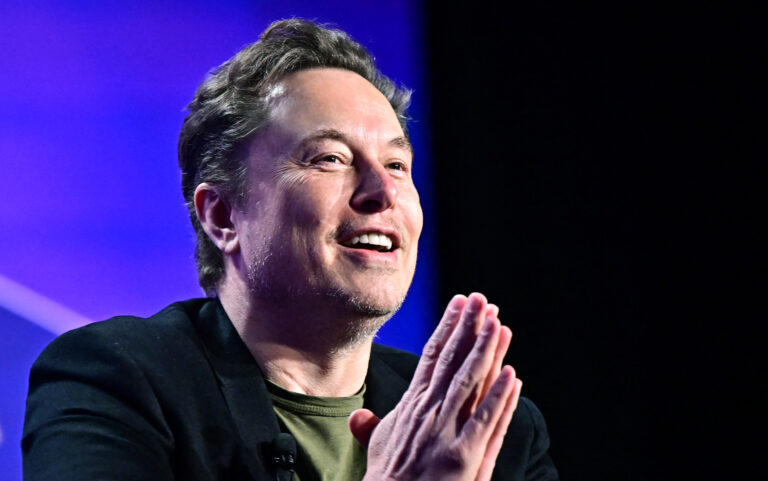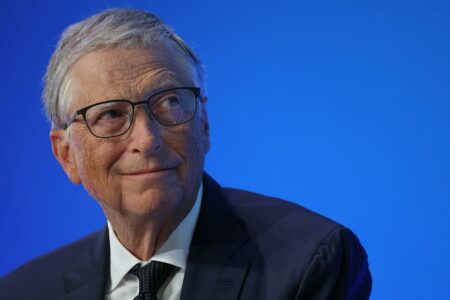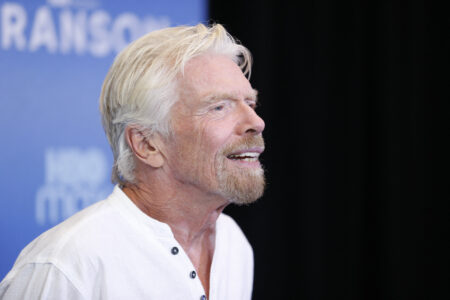
Jeff Bezos, Elon Musk, and Bill Gates — the billionaires of the 21st century.
Many are inspired and eager to follow in the footsteps of these tycoons and do so by pursuing higher education to increase their earning potential.
The more they know about an industry’s function and skill requirements, the higher they can demand, and the more valuable they become to an employer.
But is that really true?
Even with so many skilled workers across many industries, 2024 has been a year of layoffs. The tech industry alone saw almost 90,000 employees laid off across 306 tech companies, including large companies like Google, TikTok, and Indeed.
Truly, the job market has seen better times.
This Reddit post, “It’s 2024 and I’m scared,” in r/recruitinghell, is filled with comments from people sharing their gruelling experience with job hunting, with some pointing out how terrible the market is for fresh graduates.
Between generative AI and companies preferring to outsource cheaper labour, things are tough.
At this point, it’s time to wonder: is it worth spending thousands on a university degree only to be stuck right at the starting line?
Perhaps it’s time to pivot away from a university degree. After all, if some billionaires could do it, why couldn’t we?

Despite his impressive fortune, Zuckerberg lives a relatively private life. Source: AFP
The money moguls that defied conventional education
The most infamous college dropout-turned-billionaire is none other than Microsoft founder Bill Gates. He’s got a net worth of over US$131 billion.
Before you cite him as an example of why you should drop out of school, know this: Gates dropped out of Harvard University, one of the most prestigious universities in the world.
It’s a difficult university to get into; the class of 2028 will have better luck than their seniors, with the highest acceptance rate the university has seen in four years at 3.59%. Meanwhile, the class of 2027 has a rate of 3.41%, and the class of 2026 is at a record low of 3.19%.
Another famous dropout would be Mark Zuckerberg, co-founder and CEO of Facebook. He founded the social networking website right from his college dorm room at Harvard University, choosing to then drop out in his sophomore year.
Now, Facebook – known as Meta Platforms in 2024 – is valued at a staggering US$1.125 trillion. Zuckerberg himself holds a net worth of US$177.9 billion.
Some billionaires didn’t even step foot into college or university.
- Richard Branson, co-founder of Virgin Group, dropped out of school at 16 years old and began selling records out of the trunk of his car. Today, he heads a conglomerate with over 400 companies in various industries, and is one of the most successful entrepreneurs in history.
- The late Lee Shin Cheng, one of Malaysia’s billionaires, left school at 11 years old to sell ice cream on a bicycle in an attempt to support his family. When he was 22, he tried applying for a job at the Dunlop Estate – a European-owned oil palm plantation company – but was turned down because he did not speak fluent English. Twenty years later, he returned and bought the company, and later led IOI Corporation Berhad, a successful conglomerate managing oil palm plantations that catapulted his net worth into billions.
So what does this tell us? Perhaps the traditional academic journey is not the only pathway to being a billionaire.
Jack Ma, one of the richest men in China and the co-founder of Alibaba Group, said, “It is not necessary to study for an MBA. Most MBA graduates are not useful… Unless they come back from their MBA studies and forget what they’ve learned at school, then they will be useful. Because schools teach knowledge, while starting businesses requires wisdom. Wisdom is acquired through experience. Knowledge can be acquired through hard work.”
Perhaps it can be said that education is still a necessary stepping stone. It will teach you the fundamentals of the great work you do that gets you paid.
But there is some truth that what actually earns you more money in the long run is experience and a desire to learn beyond the bounds of traditional educational institutions. After all, practical intelligence and upskilling will undoubtedly get you further in life.
Wondering which universities provided great bases for these billionaires to earn their wealth? Take a look below.

Leonard Lauder, Chairman Emeritus, The Estée Lauder Companies, was honored with the 2023 Retail Excellence Award from the Wharton School of the University of Pennsylvania. Source: AFP
Universities with the most billionaires ranked
The University of Pennsylvania
QS World University Rankings 2025: #11
Famously known as America’s first university, the University of Pennsylvania (Penn or UPenn) is a private, Ivy League research institute in Philadelphia. It is home to four schools, with its business unit, Wharton School, famous for producing numerous billionaires — 36, to be exact.
Top graduates include Tesla’s Elon Musk, former president Donald Trump, and Apollo co-founders Marc Rowan and Josh Harris. Over the span of four decades, the school was also home to the heirs to the Estée Lauder fortune, namely Leonard Lauder, William Lauder, Aerin Lauder, and Ronald Lauder.
Of course, business is not the only thriving school.
Tory Burch, American businesswoman and fashion designer, obtained her art history degree from Penn, while film producer Dick Wolf pursued an English degree.

DoorDash is the largest food delivery platform in the US, with a whopping 56% market share. Source: AFP
Stanford University
QS World University Rankings 2025: #6
Stanford University, known as California’s Silicon Valley school, has produced over 30 billionaires since its inception.
Tech billionaires in particular, are a dime a dozen. DoorDash co-founders Andy Fang and Stanley Tang were students at Stanford when they created the food delivery application. Snapchat was founded by Evan Spiegel and Bobby Murphy, two fraternity brothers.
Then there’s Jerry Yang, who did both his undergraduate and master’s at Stanford, then co-founded Yahoo! after dropping out of the doctoral programme. Years later, he returned to chair the university board.

Mark Zuckerberg and his wife, Priscilla Chan, own the Chan Zuckerberg Initiative, a non-profit foundation providing grants to underprivileged communities. Source: AFP
Harvard University
QS World University Rankings 2025: #4
Harvard University’s reputation precedes it. Due to its academic excellence, Harvard has produced many top tycoons, remaining strongly connected to some of America’s richest individuals. Over 28 billionaires have graduated from Harvard, and even more millionaires are following suit.
Harvard Business School’s business education section has produced very rich, intelligent alumni: six US presidents, Citadel’s Ken Griffin — who famously installed a satellite dish on his dormitory roof to get real-time stock quotes — Airbnb co-founder Nathan Blecharczyk, and even celebrities like Natalie Portman and Neil deGrasse Tyson.
And, of course, other than famous and rich graduates, there are also famous and rich dropouts.
Bill Gates and Mark Zuckerberg were Harvard alumni, even if they technically didn’t finish their education there. However, they clearly did not forget their roots — Zuckerberg and his wife, whom he met during his time at Harvard, pledged US$519 million to the university to launch and operate the Kempner Institute for the Study of Natural and Artificial Intelligence, named after Zuckerberg’s mother.

FedEx’s commercial impact is so big that people tend to say, “I’ll FedEx it”. Source: AFP
Yale University
QS World University Rankings 2025: #23
Yale University has churned out many incredible entrepreneurs and nearly 20 billionaires as of date. The idea of FedEx started right in its classrooms, with its founder Fred Smith creating the basis for the transportation, e-commerce, and business services company for an economics paper.
Other notable billionaire Yale alumni include Pinterest co-founders Ben Silbermann and Paul Sciarra, the Bass family oil tycoons, and Blackstone chairman and CEO Stephen Schwarzman. The latter generously donated US$150 million to Yale in 2015 for a new student centre.
Cornell University
QS World University Rankings 2025: #16
Cornell University has produced 13 billionaires, some of who are the top executives and entrepreneurs in both technology and business industries. In fact, its business school was named after the founder of S. C. Johnson & Son, who donated US$20 million in 1984 to support the graduate school’s establishment.
“He held the notion that business should put back something into the communities in which they are located,” said Samuel C. Johnson, AB ’50, who named the school after his great-grandfather.
He was right. The school went on to produce numerous billionaires, such as PeopleSoft and Workday founder David Duffield, Sequoia Capital partner Douglas Leone, and even living alumni from the illustrious Johnson family. Alumni Helen Johnson-Leipold, H. Fisk Johnson and S. Curtis Johnson further pledged US$150 million in 2017 to fund the school’s endeavours.

One online study estimated Jeff Bezos makes US$59,000 per minute. Source: AFP
Princeton University
QS World University Rankings 2025: #22
The alma mater of perhaps the world’s richest man, Amazon founder Jeff Bezos himself. Princeton University is home to 12 billionaires, although it can be said that Bezos’s fortune outweighs them all.
In fact, Bezos and his billionaire ex-wife Mackenzie Scott are both Princeton graduates. They only met after graduating and working at hedge fund D.E. Shaw, but together, they made an extremely powerful, rich couple.
Other billionaire tech founders are also proud Princeton alumni.
There’s former eBay CEO Meg Whitman, Cerberus Capital CEO Stephen Feinberg, crypto investment firm Galaxy Digital founder Michael Novogratz, and former Google CEO Eric Schmidt. Both Whitman and Schmidt have also made generous donations in the millions to Princeton to help fund projects and expand.










